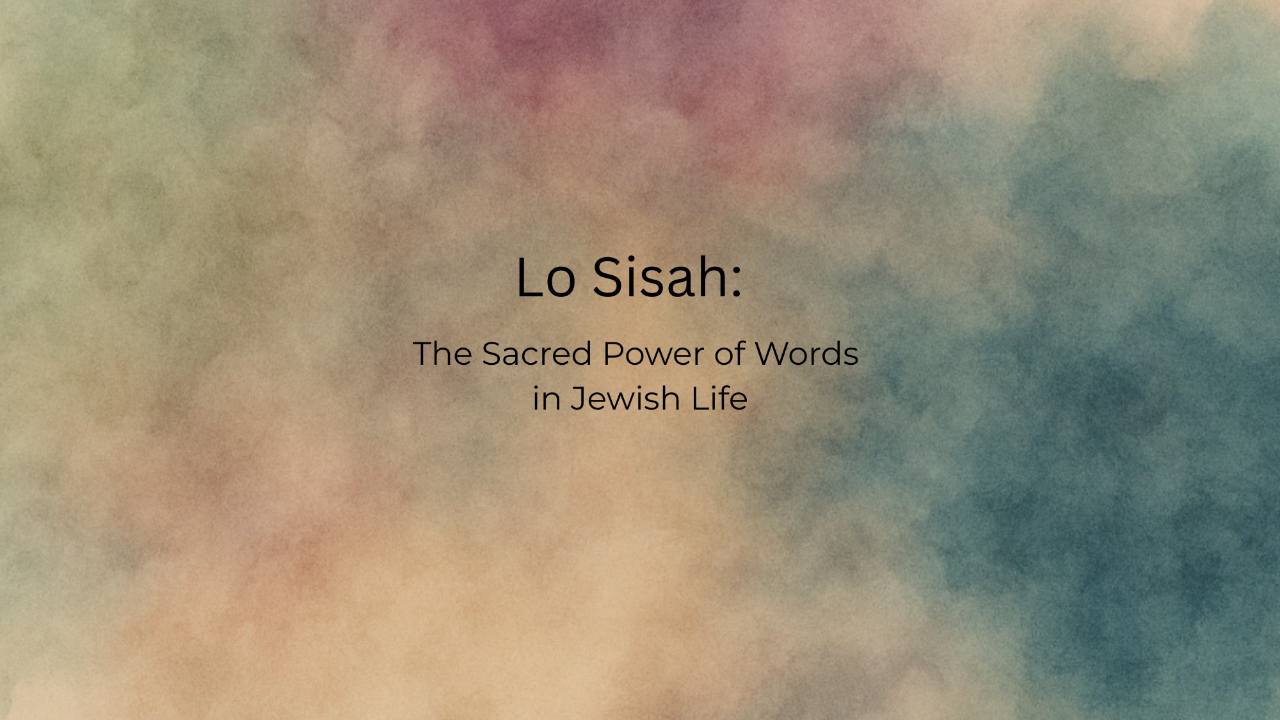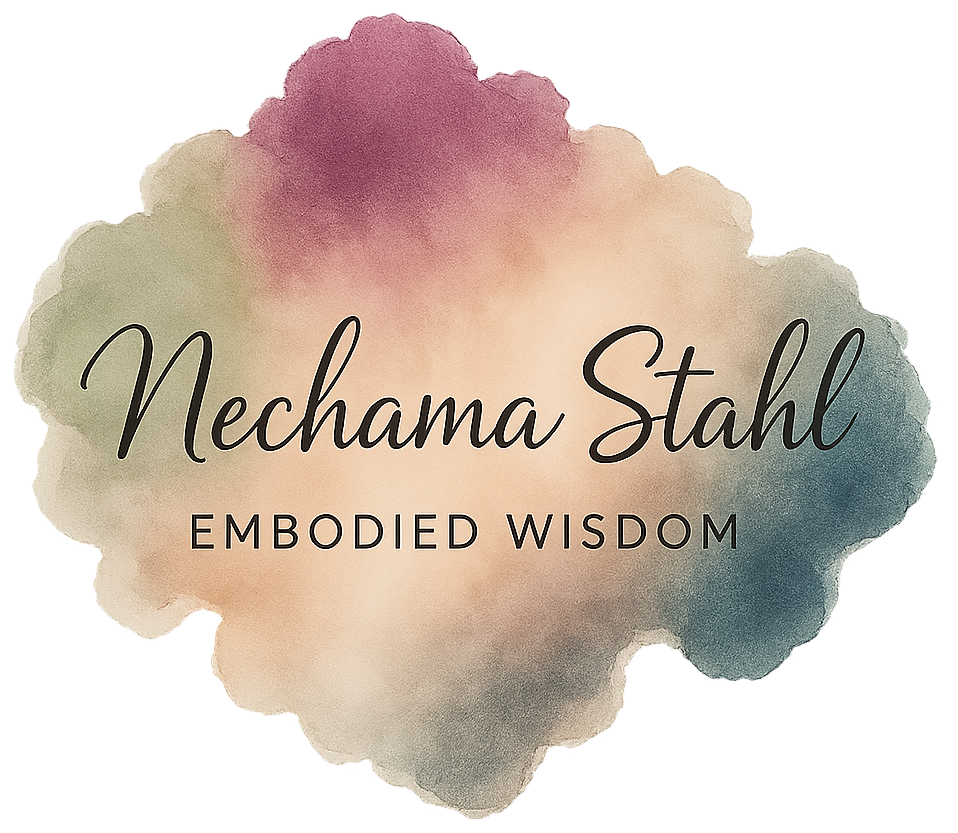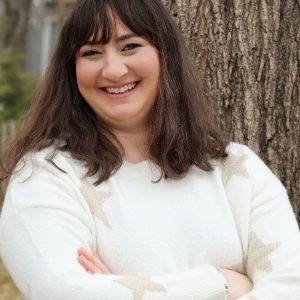
Lo Sisa and the Sacred Power of Words in Jewish Life
Jul 22, 2025This post is part of a series exploring the Aseres Hadibros (Ten Commandments) through the lens of our relationships- with G-d, with ourselves, and with each other.
“לא תִשָּׂא אֶת שֵׁם ה' אֱלֹקֶיךָ לַשָּׁוְא”
“You shall not carry the Name of Hashem your G-d in vain.” - Shemos 20:7
Most people think this commandment is about not saying Hashem’s Name for no reason. But the word “sisa” doesn’t mean say.
It means to carry.
We are always carrying something:
a mood, a belief, a memory, a name.
But it’s not just about what we carry.
It’s about how we carry it.
The pasuk doesn’t stop at Lo Sisa.
It continues: Lo Sisa… lashav.
Don’t carry Hashem’s Name in vain.
Don’t let it become empty, automatic, performative.
Because lashav means more than “for no reason.”
It means futile. Hollow. Lacking kavana or depth.
Like breath that never reaches the heart.
Like words that float out of our mouths without anchoring in our souls.
It’s a warning against hollow holiness.
Against invoking G-d’s Name without presence, reverence, or relationship.
So, the question isn’t just:
What am I carrying?
But also:
Am I carrying it with weight? With awareness? With intention?
Because how we carry Hashem’s Name doesn’t just live in abstract belief.
It shows up in how we speak.
And we are always speaking.
In words. In tones. In sighs. In silence.
Our words are the vessels that reveal what we’re carrying.
They expose what’s really inside.
Our tone, our phrasing, even our pauses — they all tell a story.
They turn invisible beliefs into audible truths.
But here’s the thing we don't realize:
Speech is just breath made audible.
And breath is sacred.
The very first breath came when Hashem blew the soul into man, “Vayipach b’apav nishmas chayim.”
The Neshama was given as a breath.
Every time we speak, we shape that breath into sound.
Every word we utter carries a trace of the Divine.
Your words carry worlds.
Your words are G-d’s Name.
Your words create.
This is why it matters how we say things.
Why kavana and pronunciation in tefillah can shift spiritual realities.
Why “Hashem, sefatai tiftach…” isn’t just an opener, it’s a prayer for our breath to be aligned with truth.
With Self: The Narratives We Breathe Inward
Every woman carries a story.
About who she is. What she’s worth. What’s possible for her.
These stories often take root in childhood, in subtle messages:
“You’re too sensitive.”
“You always need so much.”
“You’re so dramatic.”
And we begin to breathe those stories in.
Rehearsing them until they become a kind of inner Torah- not Divine, but definitive.
Lo Sisa asks us:
Are you carrying a story that speaks Hashem’s truth about you, or one that speaks fear?
That could look like:
-
Catching yourself mid-thought; “I’ll never change”, and asking, Whose voice is that?
-
Reframing “I’m bad at this” to “I’m still learning.”
-
Choosing to speak to yourself as someone worthy of carrying Hashem’s Name- because you are.
This is what alignment actually looks like.
And with all the talk of “healing” and “journeys” and “trauma therapy,” this is what no one wants to say:
Alignment is so quiet.
So subtle.
So simple.
It’s a breath before quietly redirecting a thought.
People wait for earthquakes… while ignoring the 3-second pause that could have rewritten the story.
With Hashem: The Breath Between Us
When we daven, we don’t just talk to Hashem.
We breathe Him in and out.
“ה' שפתי תפתח…” Hashem, open my lips.
Because without that Divine opening, even the holiest words can become hollow.
We might mouth the right phrases but forget the real relationship.
We live in a world that says: Fake it till you make it.
And yes- there’s power in showing up.
In whispering words you don’t yet feel.
In choosing connection even when it isn’t effortless.
But Lo Sisa nudges us gently:
Don’t fake it forever.
Don’t toss His Name into the air without kavana.
Don’t say “Baruch Hashem” with resentment.
Don’t mumble “im yirtzeh Hashem” when you don’t want Him involved.
His Name is breath-shaped holiness.
It deserves to be carried with care.
So say the words, but mean them a little more each time.
Let your breath slow you down.
Let the words touch you before they leave your lips.
Try this:
-
Before a bracha, pause and feel the breath that’s about to carry His Name.
-
Say “b’ezras Hashem” not as a tagline, but as a turning toward help.
-
Let your breath set the pace of your davening- not the siddur, not the clock.
You don’t have to be perfect.
You just have to be present.
With Spouse: The Atmosphere Your Words Create
In marriage, you don’t just carry your own story.
You carry the story of your relationship- in your words.
And every breath you speak becomes atmosphere.
Examples:
-
“You never help around here” → “I really need support tonight. Can we make a plan together?”
-
“I’m tired of trying” → “I’m scared of being stuck. Can we check in and regroup?”
-
The eye roll. The sigh. The silence. They count too.
Lo Sisa reminds us: your words aren’t “just venting.”
They’re building. Or breaking.
And the way you speak becomes the marriage you live in.
So ask yourself:
What story am I breathing into our home?
Is it one of hope, rebuilding, and trust?
Or one of distance, blame, and fear?
Are you replaying a narrative that was never yours?
Or choosing one that brings joy, intimacy, and connection?
I learned this one the hard way.
How to rewrite the narrative I’d been hostage to;
And to wield G-d’s Name not in vain, but with intention, with purpose, with love.
Practice for the Week: Breath Check-In
Once a day, pause and notice:
-
What story am I carrying right now?
-
What words am I about to shape from my breath?
-
Would I speak differently if I remembered this breath is a gift from Hashem?
And then… just breathe.
And begin again- a little more aligned.




